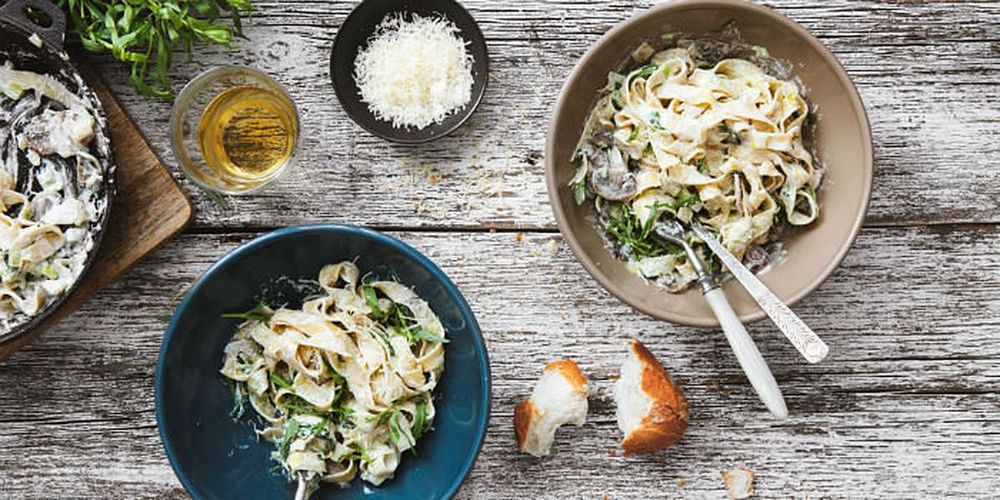
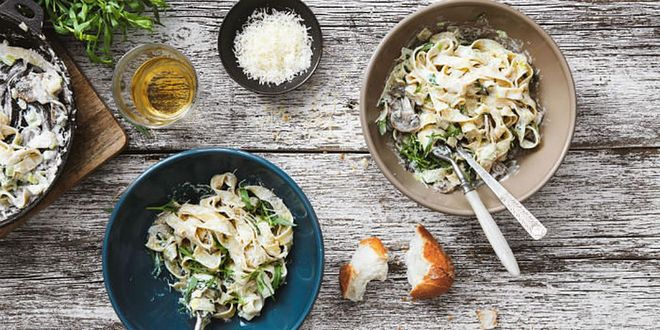
Photo: Getty
carbs
Giving up an entire food group isn't usually advisable unless there's a specific medical reason to, but often that doesn't stop people - especially when it comes to carbohydrates. Carbs seem to have acquired a bad reputation for making you put on weight, but in reality they're vital for giving your body the energy it needs.
Frida Harju-Westman, in-house nutritionist at health app Lifesum, always advises to aim for a balanced diet. "Incorporating complex carbohydrates can improve your endurance and alertness," she explains, noting that complex [most wholewheat carbs] are much more preferable to refined and simple carbs [most white carbohydrates].
If, for whatever reason, you decide to cut carbohydrates from your diet, here's what you can expect might happen to your body:
1. You could lose weight
And most of it comes down to water weight. "Diets high in sodium and insulin-promoters, like refined carbs, force the body to store more water inside and in-between cells than the body needs," Frida explains. "This retained water can amount to 10-20 pounds, depending on your diet. When you cut carbs, the body will rid itself of this water, resulting in weight loss."
Related article: 5 Reasons Why You Should Make Chocolate Your Midday Snack
2. But you could also gain weight
Losing water weight is a short-term solution, Frida says, because the weight will eventually get added back on. "It's common for those who cut carbs to replace their starches with high-fat foods such as nuts, avocados, and cheese. There's nothing wrong with high-fat foods, and they are essential to your diet," the nutritionist explains. "Keep in mind, though, that fats are more calorie dense than carbs and so they need to be eaten in moderation."
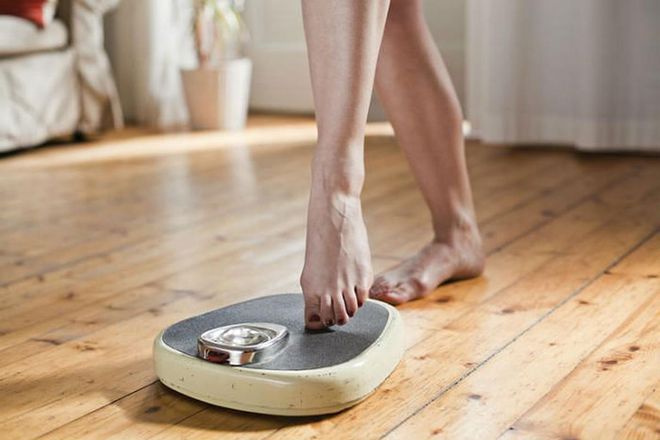
Photo: Getty
carbs
3. You might experience constipation
To ensure the body receives all the nutrients it needs, a low-carb diet often means increasing the amount of protein and fats you eat, while reducing your fibre intake. "This could result in constipation," Frida says, adding: "Ensure you’re eating a balanced diet that does not result in this kind of discomfort."
4. You might feel more tired than usual
"Your body stores carbs in the form of glycogen, which is easily absorbed in the bloodstream and is your brain’s energy source," the nutritionist explains. "That means, when you run out of carbs, your mind will need some time to adjust and you will feel tired as well as experiencing physical fatigue." Frida adds: "As explained before, it will be important to incorporate high-fat foods in moderation to help the body produce fuel from healthy fats rather than sugary carbs. If you are an athlete practicing high-intensity exercise, cutting carbs can take a toll on your endurance, so high-fat foods and protein will be even more important."
5. Your might get bad breath
Not the most pleasant of side effects, but it is one that's quite common. Frida explains: "As you cut carbs out of your diet, and the body is ridding itself of the excess water weight, it is common to experience a case of dry mouth."
Related article: 5 Healthy Foods That Can Be Harmful To You If Overconsumed
But that's not the only reason you might get bad breath on a carb-free diet. "When you cut carbs, your body enters a state called ketosis, which is when your body starts to burn fat for fuel instead of carbs," says the expert. "In addition to being released throughout the body, ketosis is released through your breath and can result in a fruity smell or, in extreme cases, the smell of nail polish remover."
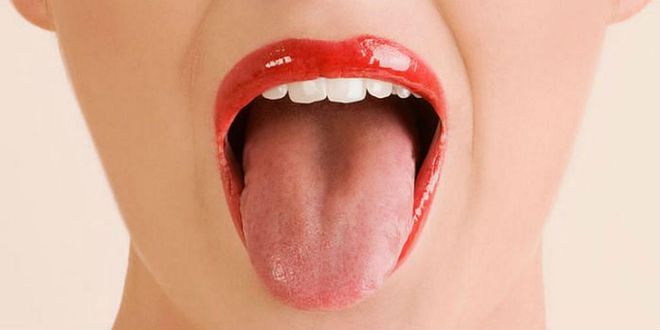
Photo: Getty
carbs
6. You will feel less hungry
"Refined carbs lack essential nutrients such as fibre, protein, and healthy fats, and instead fuel the body with fast calories and sugar highs," says Frida. "If the body is lacking nutrients, it will never feel full and satisfied, thus the constant cravings. It follows, then, that if you cut out refined carbs and replace them with healthy and nutrient filled foods or complex carbs, your will eat less and feel full for longer," she notes.
7. Your diabetes risk may decrease
Refined carbohydrates are high in sodium and promote the release of insulin (which balances your blood-sugar levels). If you have a high-carb diet, this can cause the pancreas to produce more insulin than it needs, which could ultimately lead to type 2 diabetes. Reducing your intake of refined carbohydrates will lessen the chance of this happening.
But Frida reminds us of the difference between refined, simple carbs (biscuits, alcohol, and white toast) and complex carbs (peas, beans, and whole grains). "Refined carbs have little to no nutritional value, and are often referred to as 'empty calories'," she says. "They are not worth the health risks associated with them."
8. You will crave sugar
Since refined carbs are high in added sugars, cutting this out of your diet can lead to extreme cravings. "Sugar is highly addictive and extremely hard to quit," says Frida. "In fact, in a review published in the British Medical Journal last year, the authors argued that there is 'substantial parallels and overlap between drugs of abuse and sugar, from the standpoint of brain neurochemistry as well as behaviour'." But there is light at the end of the tunnel. "If you stick it out, your body will adapt, and soon you will prefer an apple over the chocolate chip cookie," Frida reassures us.
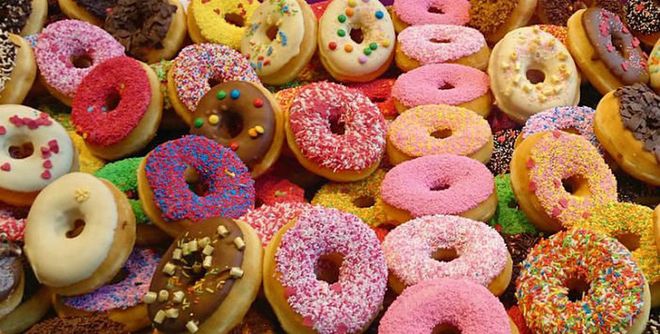
Photo: Getty
carbs
9. You can suffer from flu-like symptoms
"Perhaps one of the most common side effects of cutting carbs is the flu-like symptoms including headaches, nausea, and exhaustion. This is completely normal and can be minimised or cured by ensuring that your body is hydrated," the expert explains. "Drink a lot of water (eight glasses per day) and if the symptoms do not go away after 2-4 days, you might need to reassess your diet. Do your research and ensure you’re eating a balanced diet."
Related article: This Is The Best Way To Eat White Pasta If You Don’t Want To Put On Weight
10. You might experience some hair loss
It sounds scary, but Frida reassures us temporary hair loss is a completely normal side effect of any dietary change. "This is especially common when restricting the intake of sugar and carbs. It will normally occur about three months following the start of your new diet," she says. The good news is that it is temporary and barely noticeable, so try not to worry too much.
Lifesum is a Stockholm-based digital health company that uses tech and psychology to create a tailored plan to help people live happier, healthier more balanced lives. The app is available to download on iOS and Android.
This post originally appeared on Harper's BAZAAR UK.